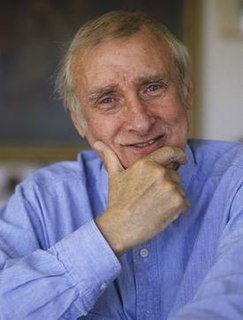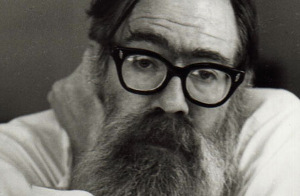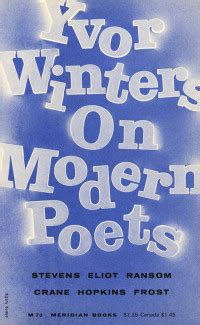A Quote by Robert Graves
If I thought that any poem of mine could have been written by anyone else, either a contemporary or a forerunner, I should suppress it with a blush; and I should do the same if I ever found I were imitating myself. Every poem should be new, unexpected, inimitable, and incapable of being parodied.
Related Quotes
I keep feeling that there isn't one poem being written by any one of us - or a book or anything like that. The whole life of us writers, the whole product I guess I mean, is the one long poem - a community effort if you will. It's all the same poem. It doesn't belong to any one writer - it's God's poem perhaps. Or God's people's poem.
I should think that many of our poets, the honest ones, will confess to having no manifesto. It is a painful confession but the art of poetry carries its own powers without having to break them down into critical listings. I do not mean that poetry should be raffish and irresponsible clown tossing off words into the void. But the very feeling of a good poem carries its own reason for being... Art is its own excuse, and it’s either Art or it’s something else. It’s either a poem or a piece of cheese.
The art of the poem nowadays is something unstable; but at least the construction of the poem should make sense; you should know where you stand. Many questions haven't been answered as yet. Our poets may be wrong; but what can any of us do with his talent but try to develop his vision, so that through frequent failures we may learn better what we have missed in the past.
It has been said that a poem should not mean but be. This is not quite accurate. In a poem, as distinct from many other kinds of verbal societies, meaning and being are identical. A poem might be called a pseudo-person. Like a person, it is unique and addresses the reader personally. On the other hand, like a natural being and unlike a historical person, it cannot lie.
I can't read my poem "Distracted by an Ergonomic Bicycle" without thinking of Seattle, where the events of the poem took place, and I can't read "In Defense of the Semicolon" without thinking of Toronto - but why should that matter to anyone else? If another reader imagines "In Defense of the Semicolon" taking place in New Orleans, great.
What I desire of a poem is a clear understanding of motive, and a just evaluation of feeling A poem in the first place should offer us a new perception..bringing into being a new experience Verse is more valuable than prose for its rhythms are faster and more highly organised and lead to greater compexity.
You have the greatest soul, the noblest nature, the sweetest, most loving heart I have ever known, and my love, my reverence, my admiration for you, you have increased in one evening as I should have thought only a lifetime of intimate, loving association could have increased them. You are more wonderful and lovely in my eyes than you ever were before; and my pride and joy and gratitude that you should love me with such a perfect love are beyond all expression, except in some great poem which I cannot write.
Lord, if I thought you were listening, I'd pray for this above all: that any church set up in your name should remain poor, and powerless, and modest. That it should wield no authority except that of love. That it should never cast anyone out. That it should own no property and make no laws. That it should not condemn, but only forgive.






































